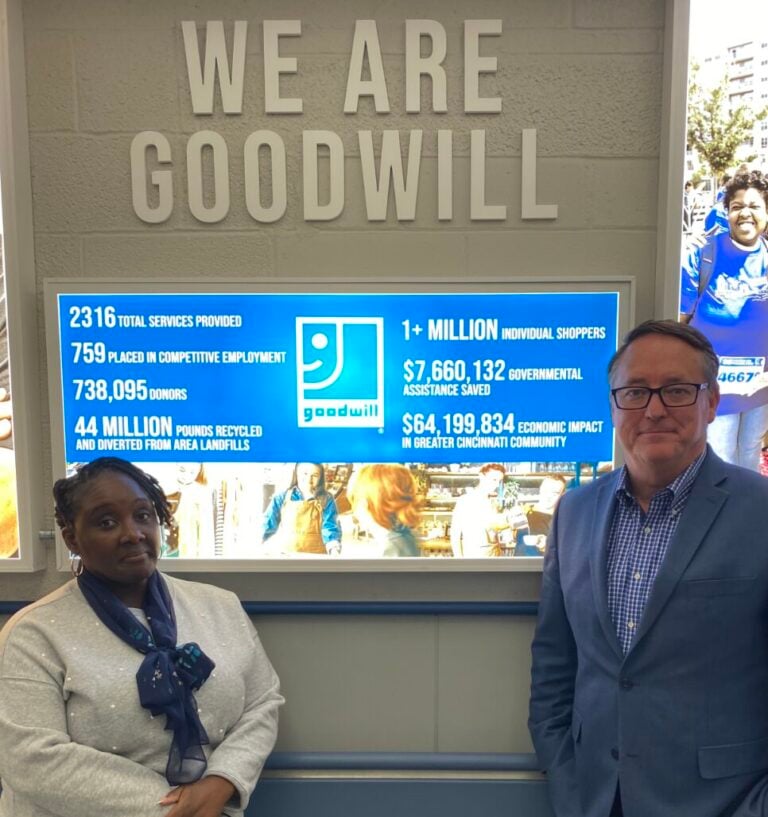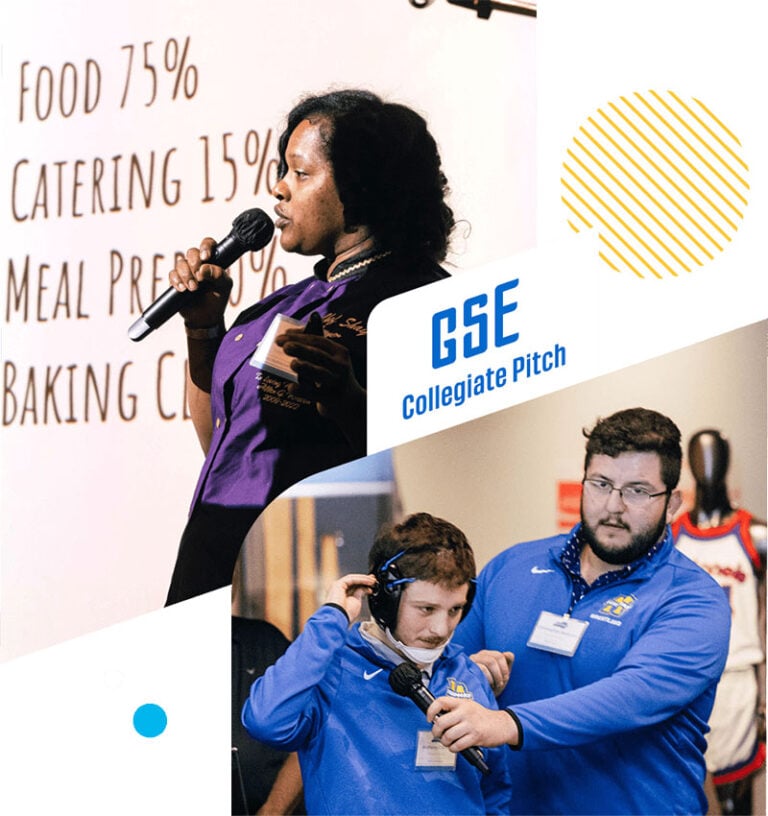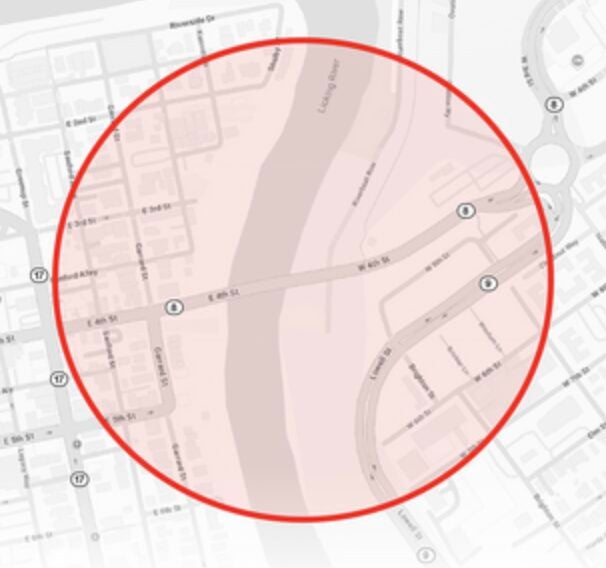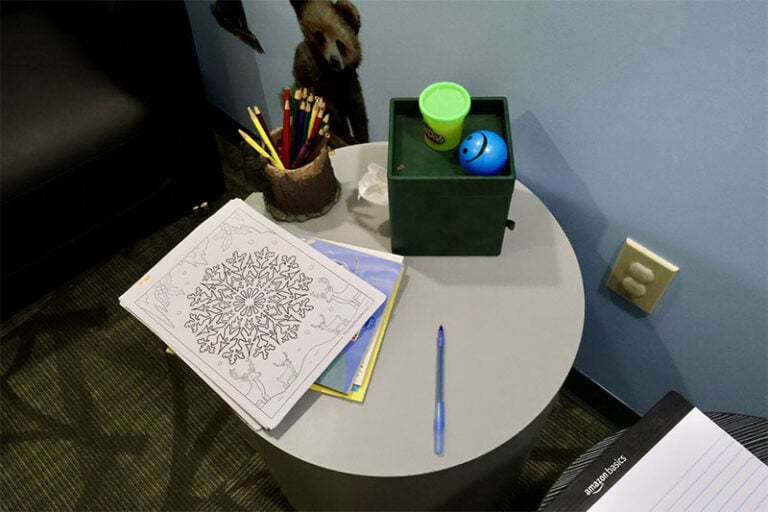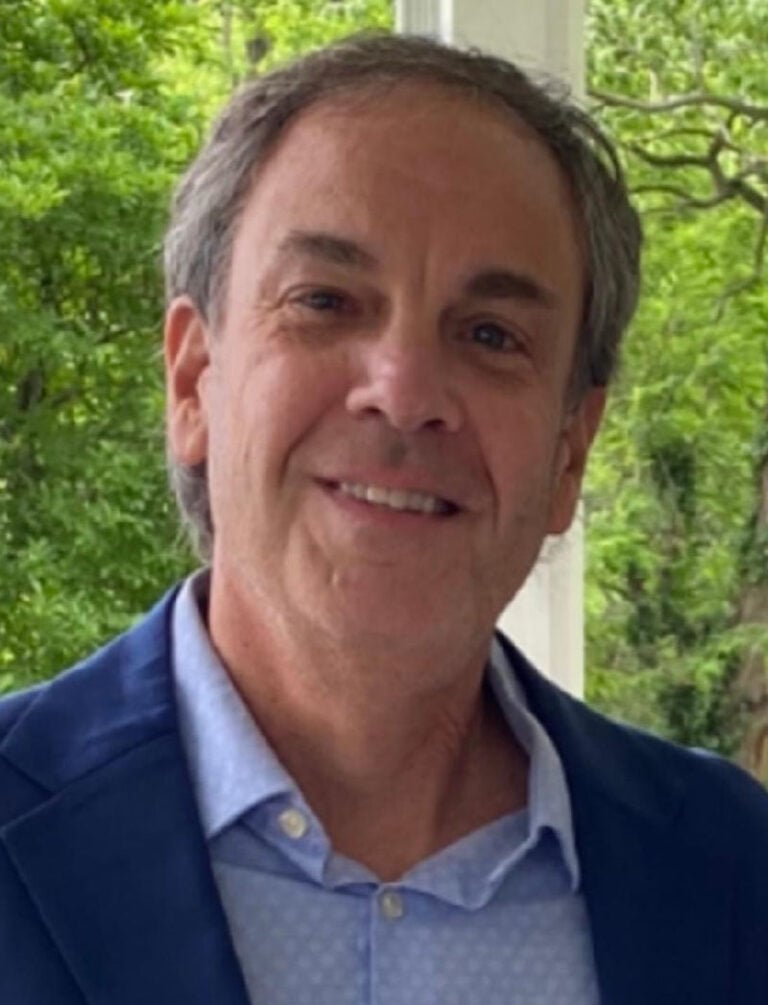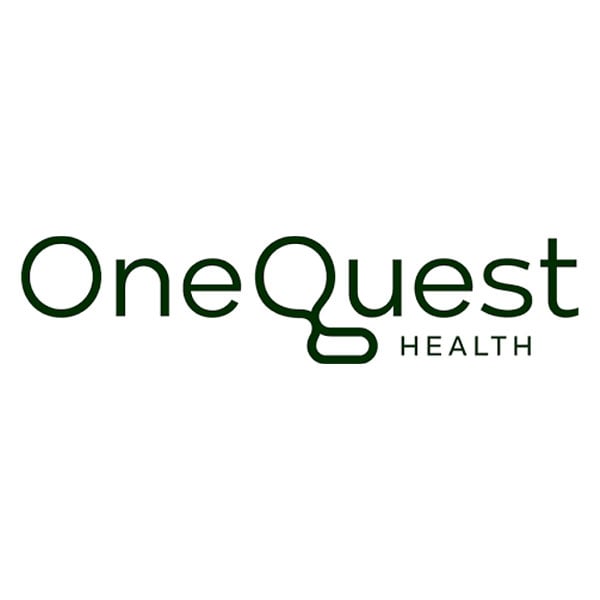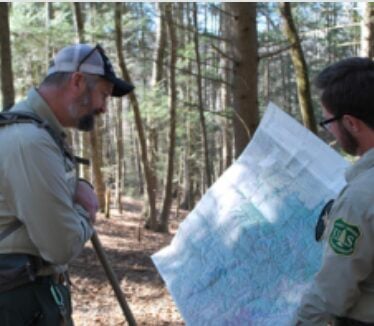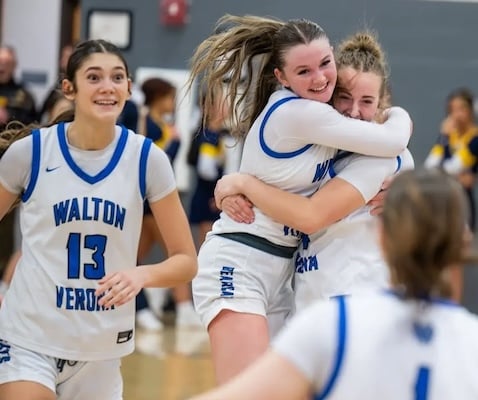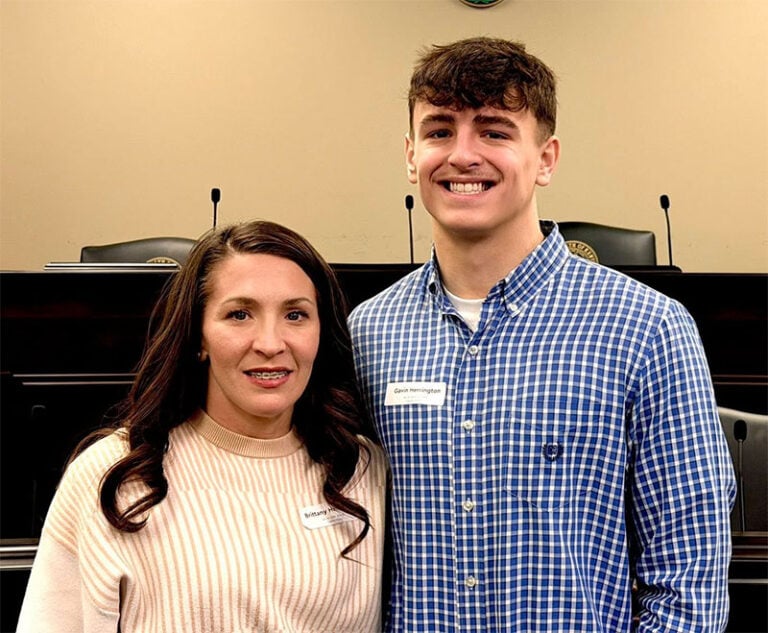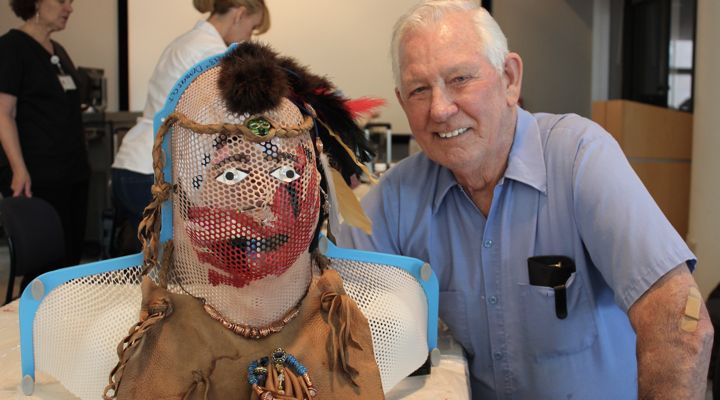
At one time, the plastic mesh head and neck mask Richard Powers wore during 33 rounds of radiation therapy was bound for the bottom of a lake. After six weeks of treatment, Powers told nurses at the University of Kentucky Markey Cancer Center he planned to hurl the mask into the water on a fishing trip.
But once he completed his treatment, Powers changed his mind. For the 75-year-old who’s battled three different types of cancer in his lifetime, an art therapy workshop helped him to re-imagine the mask as a symbol of victory over his disease. Powers, a descendant of the Cherokee Nation, transformed the mask into a sculpture of a decorated Native American chief.
“I have Cherokee blood in me from my grandmother – they’re very strong people,” Powers said. “So I’m making him up as a warrior.”
During the art therapy workshop hosted at Markey, Powers smeared handprints of bright red “war” paint across the cheeks of his Cherokee warrior. With help from his stepson Eddie Roberts, he assembled a headdress of feathers on the top of the chief head and attached a sheet of leather cut from an old purse across as a chest piece. A former member of the military, Powers hung an anchor symbolizing his service on one ear and a tiny fleur de lis, a token from a memorable trip, on the other ear.
“I’m going to take it home and put it in my living room somewhere hopefully or my hall entry way, and it will be a reminder and a conversation piece,” Powers said. “People will come in and say, ‘What is that?’ And I’ll be able to tell them that’s the mask I wore to cure my throat cancer.”
Throughout the summer, Fran Belvin, an art therapist with the UK Markey Cancer Center and UK Arts in HealthCare program, is hosting a series of mask-making workshops for head and neck cancer patients. The workshops include both a therapeutic and expressive component.
Belvin starts the day by leading the participants in a discussion of their experiences with radiation treatment, providing patients with the opportunity to share both positive and negative emotions tied to the treatment process and their mask. Then, the patients transition to an art studio setting where they use a varied array of art materials provided by Belvin, as well as personal items, to paint and embellish their masks.
Radiation treatment to the head and neck requires patients to wear a stiff plastic mesh mask to secure their positioning. Patients feel supressed and confined during the treatment process. Radiation for throat and head cancer causes patients to feel weak and tired, and can have long-term side effects such as a hoarse voice and difficulty swallowing. Patients commonly fantasize about elaborate ways to rid themselves of the masks after treatment.
But given the opportunity to repurpose the mask, patients finished with radiation treatment are eager to let loose their imaginations and creativity. As a medium for art, Belvin said the large masks tend to inspire dramatic themes and extravagant interpretations of the self. The themes displayed through the masks range from humorous and gaudy to powerful and spiritual.
“It’s a way for the patient to transform the experience of having cancer and having radiation – which can be an uncomfortable and confining feeling – into something really positive and beautiful – or dramatic and exciting,” Belvin said.
Belvin is offering the workshops to any head or neck cancer patient from the Markey Cancer Center who has completed radiation treatment. If a patient did not keep his or her mask, one is provided. The workshops are scheduled one Friday per month throughout the summer. Participants may come just for the morning or the afternoon, or may stay all day. Patients also may come more than once to complete their sculptures and may bring a friend or family member to help them. Future workshops are scheduled to take place on June 26, July 24 and Aug. 21 from 10 a.m. to 3 p.m. To register or for more information, call Christina Jewell at 859-323-4895.
Jenny Wells and Elizabeth Adams wrote this story for UKNow. Video was produced by UK Public Relations and Marketing.







